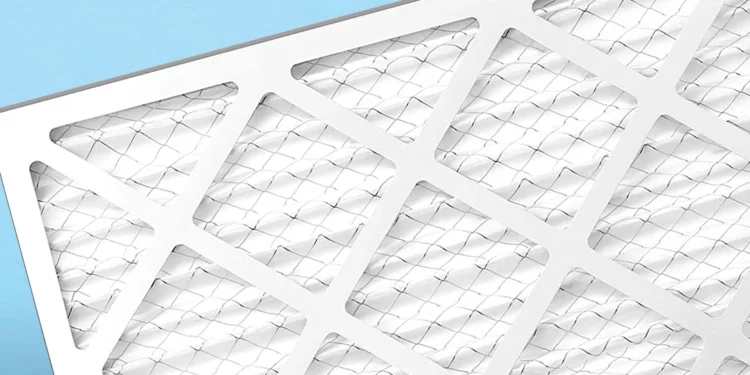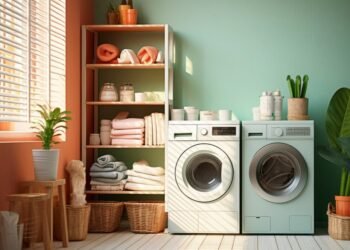MERV is Minimum Efficiency Reporting Value. It is a measure of air filter efficiency. So through MERV rating, we learn about an air filter’s effectiveness.
This rating system is accepted and used throughout the HVAC industry. An air filter with a MERV rating can capture air pollutants with a size of 0.3 to 10 microns. Filters play a major role in your HVAC system, so you need to understand various concepts of MERV ratings before installing one.
How MERV Ratings Works
MERV ratings range from 1 to 20, where 20 is the highest and most effective filter you can purchase. So higher the MERV rating is, the better it can capture air pollutants and has greater air filtration capability. Here is a detailed explanation of how MERV ratings work-
MERV Rating Level 1-6
Air filters belonging to this level are the lowest-rated filters. These filters can remove dust, pollen, dust mites, carpet fibers, etc. These filters are suitable for minimal filtration environments, paint booth inlets, industrial workplaces, etc.
But these are not recommended for homes or office spaces as it is not effective for removing allergens or air pollutants that cause lung issues. You can use these filters in a smaller house with no pets or family members with respiratory diseases. But other than that, it is not recommended for homes.
Learn about some of The Most Common Broken Appliances.
MERV Rating Level 8-13
These are medium-range filters. These can remove lead dust, humidifier dust, nebulizer dust, pollen, mold, welding fumes, etc. These filters are most recommended for homes as they are easy to clean and have less restricted airflow.
If you own pets or suffer from lung or respiratory diseases, installing these filters in your HVAC might be helpful for you. But they are not that effective when it comes to capturing very tiny particles. MERV 10 and MERV 8 air filters are generally used in homes. MERV 13 HVAC filters are used in commercial buildings. But if you want higher filtration in your home, you can go for MERV 13 air filters.
MERV Rating Level 14-20
These are the highest-rated filters available in the market. These filters assure a higher level of ventilation and can protect from air contaminants. These can remove smaller particles such as bacteria, auto fumes, viruses, smoke, carbon dust, allergens, odor, etc.
These filters are usually not recommended for homes, rather these are mostly suitable for highly sanitized spaces such as hospitals, laboratories, inpatient care units, and superior commercial buildings. A major drawback of these filters is, they restrict the airflow of the HVAC system and requires regular maintenance.
Why are MERV Ratings So Important?
There are several reasons why these filters are so popular right now. Some benefits of using these filters are-
Indoor Air Quality
Filters can improve indoor air quality by trapping pollutants. It helps us breathe clean and fresh air. These filters purify the air with their multiple layers of filtration and remove more contaminants. It keeps your home clean and maintains sanitation inside your home.
Power Usage and Utility Bills
Medium-rated filters do not require much power. You won’t have to worry about increased utility bills as they consume less power.
HVAC System’s Performance
Filters can enhance your HVAC system’s performance. It can increase the system’s longevity as well as effectiveness.
Conclusion
Before purchasing a filter, learning how the MERV ratings work beforehand is important. To learn which filter is best for you, visit our website, SimplyFilters, a well-known air filter supplier spread all over the USA. Here you can find premium quality HVAC air filters of various sizes, like 12.13×19.5×1 air filters, and more. Also, you can contact us to get consultancy on choosing the right filter for your HVAC.









